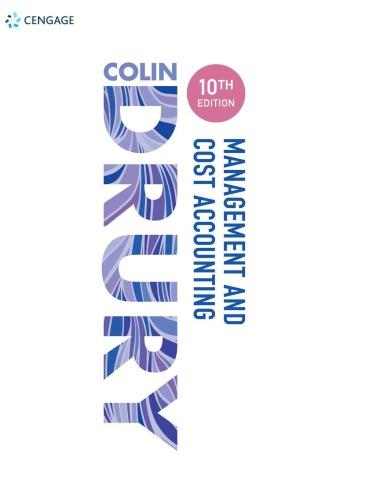Cloud computing is a term used to describe the delivery of information systems without, for example, the
Question:
Cloud computing is a term used to describe the delivery of information systems without, for example, the purchase of physical hardware or even software in some instances. What this means for an average business is that they can purchase processing capability, data storage or content delivery of large-scale computer systems, but at a fraction of the purchase price of the same equipment. Thus, expenditures move from a capital nature to an operational nature. Amazon Web Services (aws.amazon.com) has been one of the pace setting firms in cloud computing. An arm of the well-known online retailer, the web services division offers a broad range of services from computing to database services, payments and billing, data storage and even a staffed support service. The pricing depends on the services offered, and until recently the competition was scarce. Until around 2010, Amazon was the market leader in cloud service provision. Then Microsoft released its cloud computing (Azure) and the immediate response of Amazon was to reduce all prices by \($0.02\) per gigabyte, which at the highest usage levels represented a price drop of 40 per cent. Pricing of most cloud providers now operates on a pay-as-you-use basis – the more services used, the higher the cost – and there are many more operators such as Rackspace, Google Cloud and IBM. In the accounting field, a number of providers offer cloud-based software services, charging a small monthly fee. For example, Quickbooks Online (quickbooksonline.intuit.com) is available from \($10–40\) per month depending on the product. Other examples include Billfaster at €20/£16 per month, and Kashflow (www.kashflow .com) ranging from £7–18 per month. Increasingly, such cloud software providers are providing more and more add-ons (e.g. Paypal integration) to retain customers. Almost all providers also offer a free trial period, typically 30 days.
Questions:
1 Do you think large-scale providers like Amazon, Microsoft and IBM can influence prices of cloud computing in the longer term?
2 What is your opinion on a long-term price of zero, as currently offered by some cloud providers of accounting software? Is this model sustainable in the long run?
Step by Step Answer:






